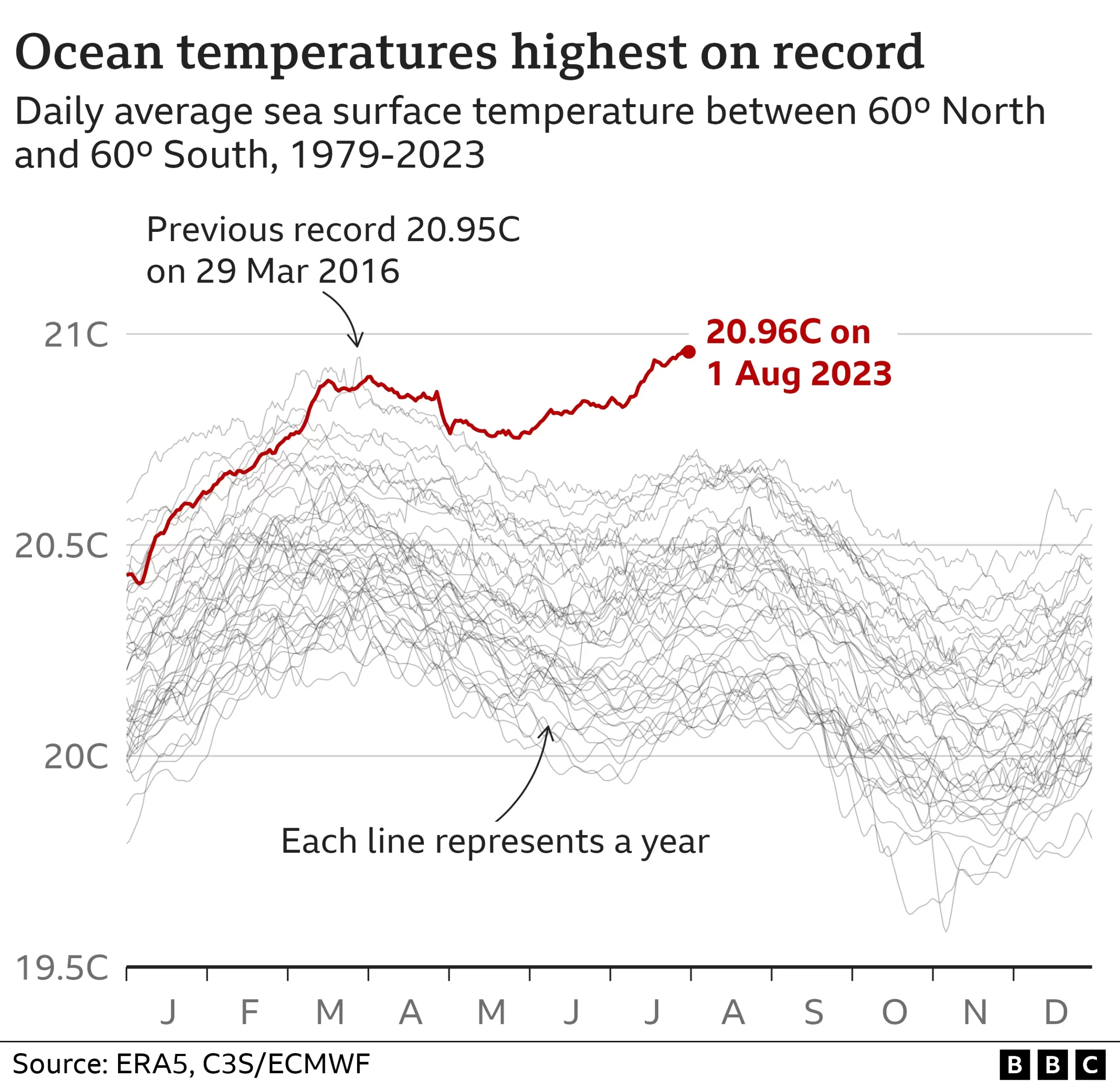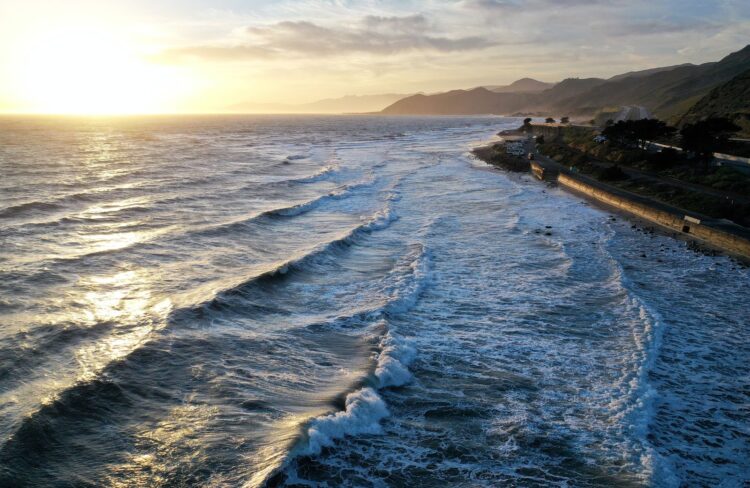Experts caution against dire implications for planet Earth, as oceans hit their “hottest ever” recorded temperatures due to rising climate change.
According to the European Union (EU)’s Copernicus, the average daily global sea temperatures since 2016 were reportedly beaten this week by reaching 20.96C. According to Copernicus, oceans are a significant “climate regulator” as they soak up heat, produce oxygen and drive weather patterns.
IHC overturns trial court decision to declare Toshakhana case as admissible
Govt establishes Autism Centre in PIMS: Shahadat Awan
If temperatures continue to rise, water bodies across the Earth would absorb lesser carbon dioxide leaving more “planet-warming gas” to stay in the atmosphere. On the other hand, it can also lead to an acceleration of melting glaciers resulting in more sea level rise, as glaciers will flow into the oceans. Experts have argued that hotter oceans and frequent heatwaves greatly disturb marine life, forcing fish and whales to migrate in search of cooler waters. Not only does this upset the food chain, but it could also impact the fish stocks. The disturbance can also make sharks and other predatory animals to become “aggressive” as they are unable to cope with the rising temperatures.

Dr. Kathryn Lesneski, who is monitoring a marine heatwave in the Gulf of Mexico for the National Oceanic and Atmospheric Administration (NOAA) has cautioned: “There is widespread coral bleaching at shallow reefs in Florida and many corals have already died”. Likewise, Dr. Matt Frost believes: “We are putting oceans under more stress than we have done at any point in history”.
Meanwhile, Dr. Samantha Burgess of the Copernicus Climate Change Service (CCCS) has argued that oceans should be warmest in March, not in August. Expressing concern, Dr. Burgess said: “The fact that we’ve seen the record now makes me nervous about how much warmer the ocean may get between now and next March”.

PM Shehbaz pays tribute to fallen heroes on Police Martyrs Day
Denmark to tighten border control after Holy Quran desecrations
Similarly, Mike Burrows a professor with the Scottish Association for Marine Science has added that the change is rapidly happening which is a “sobering” experience.
According to a BBC report, scientists are currently investigating possible causes behind the rise in oceanic temperatures. Explaining the process, Dr. Burgess has argued that the more fossil fuels are burnt, the more heat will be absorbed by the oceans.

Referencing the El Niño effect, scientists believe average global ocean temperatures have broken records since 2016. They have cautioned that another, weaker El Niño has started which means ocean temperatures are expected to continue rising above average in the months that follow.
According to Burgess, “The marine heatwaves that we’re seeing are happening in unusual locations where we haven’t expected them”.
Supreme Court disposes of Imran Khan’s appeal in Toshakhana case
Allies’ huddle today to discuss interim setup
Islamic State group announces death of leader
Skardu airport all set to go for international flights from Aug 14
Pakistan stresses to implement UNSC resolutions on Kashmir
Stay tuned to Baaghi TV for more. Download our app for the latest news, updates & interesting content!






